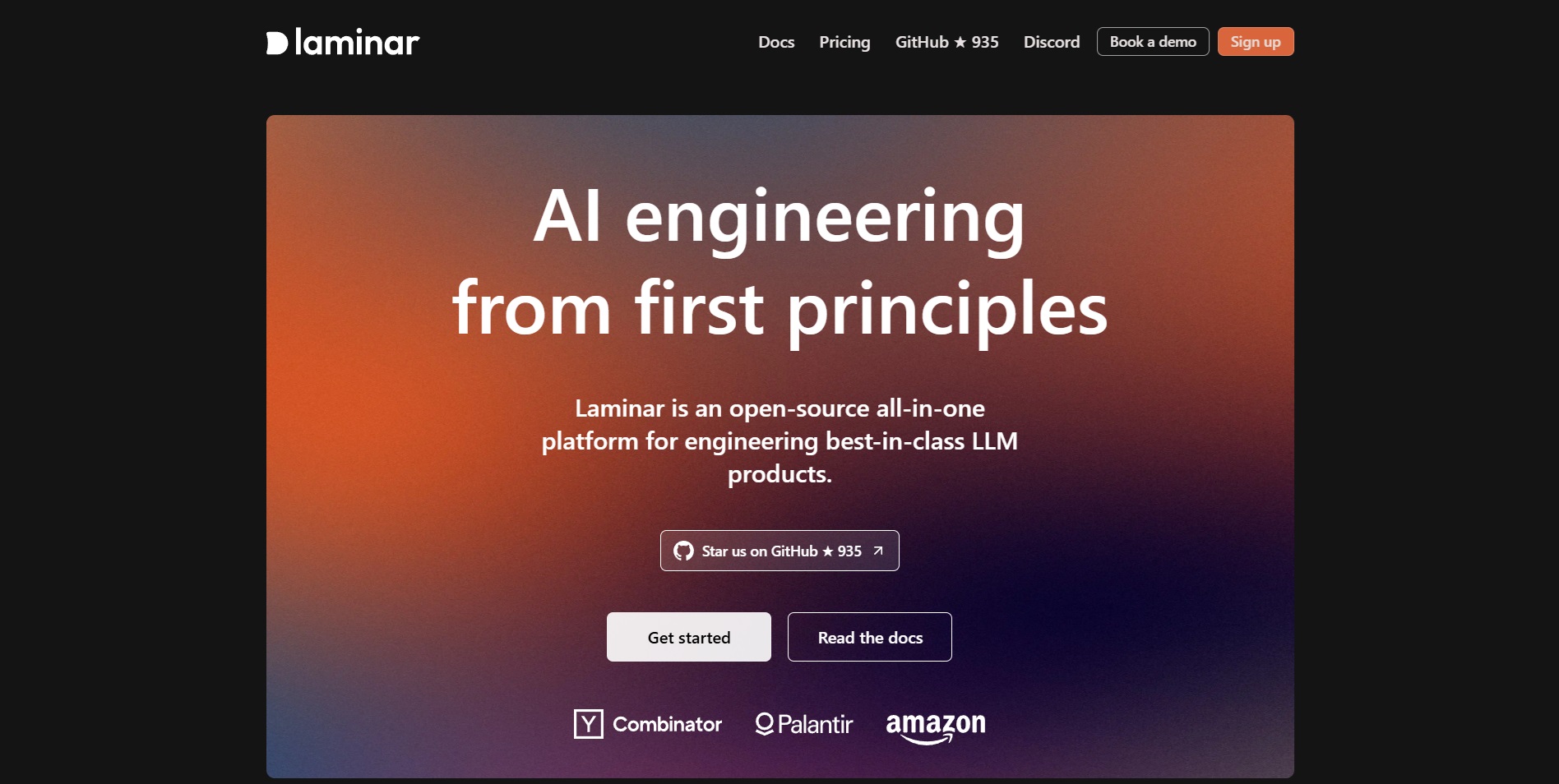What is Laminar?
Laminar is an open-source platform that enables the efficient engineering and deployment of large language model (LLM) applications by providing comprehensive tools for observability, evaluation, data management, and prompt chain orchestration. Designed for AI engineering teams, Laminar streamlines LLM application development from data collection to evaluation and fine-tuning.
Key Features
- Tracing: Laminar’s tracing functionality is integral to understanding and refining LLM behavior. By tracing an application’s execution, developers can observe each step in the pipeline, collect critical data, and use it to refine evaluations and fine-tune models. With minimal setup, users can trace entire applications in real time, utilizing Laminar’s gRPC for low-latency, high-throughput data transfer.
- Evaluations: Laminar offers both online and offline evaluations to streamline prompt and model testing. Offline evaluations function as unit tests for LLM prompts, enabling rapid iteration within CI/CD pipelines or directly from code. Online evaluations, configured through the UI, allow LLMs or Python scripts to label spans as they come in, providing scalable solutions for smaller teams without the need for extensive human involvement.
- Data Labeling and Analytics: To further enhance LLM performance, Laminar includes tools for labeling and annotating data. Team members can label application spans and measure inter-annotator agreement, while automated online evaluators assist in tagging spans, enabling insights into alignment with human labeling. These labeled spans can be organized into datasets, which are essential for continuous model training and prompt refinement.
- Prompt Chain Management: For teams looking to build sophisticated prompt workflows, Laminar supports the development and hosting of prompt chains. This functionality is ideal for experimenting with advanced techniques, like Mixture of Agents or self-reflecting agents, without embedding complex logic into code.
Open-Source and Self-Hosting
Fully open-source, Laminar allows users to self-host the platform for free, although managed services are available for high-volume production needs. With its foundation in OpenTelemetry and integration capabilities for popular frameworks such as OpenAI, Langchain, and Anthropic, Laminar is built to be versatile and easily adaptable across LLM engineering projects.
Pricing
Laminar’s tiered pricing offers a range of plans:
- Free: Basic plan with community support, 10K spans per month, and 7-day data retention.
- Pro: $25/month, includes 50K spans, 60-day retention, and priority support.
- Team: $300/month, supporting up to 1M spans, 180-day retention, private Slack channel, and additional team options.
With its suite of tools, Laminar is a powerful resource for teams seeking to build, test, and optimize LLM applications with precision and efficiency.
Methodology
- Who?
We are SaaS experts: Our specialists constantly seek the most relevant information to help support your SaaS business. - Why?
We are passionate about users accessing the best SaaS and AI tools: We offer up-to-date pricing data, new tools, blogs and research to help you make informed decisions. - How?
With accurate information: Our website manager curates all tools using our curation methodology. Our editorial team fact-check every piece of content we publish, and we use first-hand information, value metrics and leading market data.
